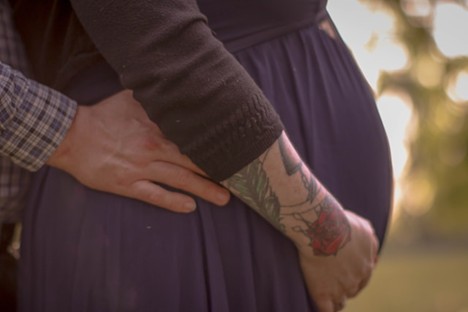
Disclaimer: Always consult your physician before getting inked during pregnancy or while breastfeeding. This article is meant to be informative and does not provide any specific medical advice.
Tattooing is now a common and celebrated form of self-expression—but what happens when pregnancy or breastfeeding enters the picture? For many expecting or nursing moms, questions arise about safety during tattoo sessions. The connection between body art and maternal wellness is nuanced, and understanding the risks is essential. This guide explores the key medical, scientific, and practical insights to help you navigate this decision with confidence. From hygiene protocols to the use of products like stencil solution during prep, we’ll cover what you need to know before committing to ink during this unique chapter of life.
When your body is nurturing a baby or providing nourishment, it shifts into protective mode. The immune system becomes more sensitive; skin becomes more delicate; and bodily priorities focus on supporting new life. Injecting ink during this period can pose unexpected risks, even if everything seems routine.
Experts caution that while there isn’t definitive proof of harm, there are valid reasons why many artists and medical professionals advise postponing ink until after breastfeeding or delivery. Key considerations include:
Tattoo tools break the skin barrier. If even microscopic contamination enters the bloodstream, the result could range from mild redness to serious systemic infections. While the incidence is low in clean, professional environments, the risk is amplified during pregnancy or postpartum when your immune system is finely tuned to support the baby.
Artists emphasize that sterilized equipment and hygiene protocols are mandatory, but when the body faces added demands (like growing a fetus), it may not bounce back as easily from a minor infection or inflammation.
Hormonal shifts during pregnancy can thicken or thin skin in certain areas, making reactions unpredictable. Some women report increased sensitivity or stronger discomfort during tattooing, while others may notice new patchy redness or swelling during healing.
Tattoo artists also highlight that:
Understanding how your body has transformed physically helps in strategic placement planning.
Like many beauty procedures, tattoo ink and application methods have evolved, but many products still carry unknown additives, preservatives, or heavy metals not necessarily vetted for prenatal use.
Studies suggest that tiny pigment particles may enter the bloodstream, though evidence regarding infant risk via breast milk is inconclusive. Since comprehensive testing hasn’t confirmed ink safety in pregnancy, caution is advised.
During breastfeeding, the focus shifts to potential toxin transmission through milk. There’s also the added factor of skin stress and healing time. Parents usually prefer to go fully prepared for childcare without adding discomfort, tight clothing, or temporary soreness into the mix.
We interviewed seasoned tattoo professionals and tattoo educators for their advice:
“I always recommend postponing until after pregnancy or at least six months postpartum,” says a veteran artist. “It’s about reducing risk, not denying expression.”
“If clients do decide to go ahead, they’re strongly advised to pick areas away from stretch lines, maintain impeccable hygiene, and follow up closely on healing. No shortcuts.”
Artists who do take maternity bookings often limit sessions to small, controlled designs like wristlets or finger tattoos with minimal pigment and bother.
Every pregnancy is unique. That’s why your physician's consent is non-negotiable for tattoos during pregnancy or breastfeeding. Conversations should include:
Opting to postpone ink can come with its own benefits:
Many clients report that the delay makes them more intentional about their artwork—supporting stronger creative outcomes.

For those who choose to proceed, here are tattooist-approved safeguards:
While tattoos during pregnancy or breastfeeding can sometimes be done safely, it’s a deeply personal decision that requires awareness, preparation, and medical support. The core principle? Prioritize health and protection - for yourself and your child.
If you feel drawn to ink now, have open conversations with both your doctor and your tattoo artist. If you choose to wait, know that your design will wait too - ready to shine once your body is fully settled.
A reminder again: Always consult your physician before scheduling a tattoo during pregnancy or breastfeeding.